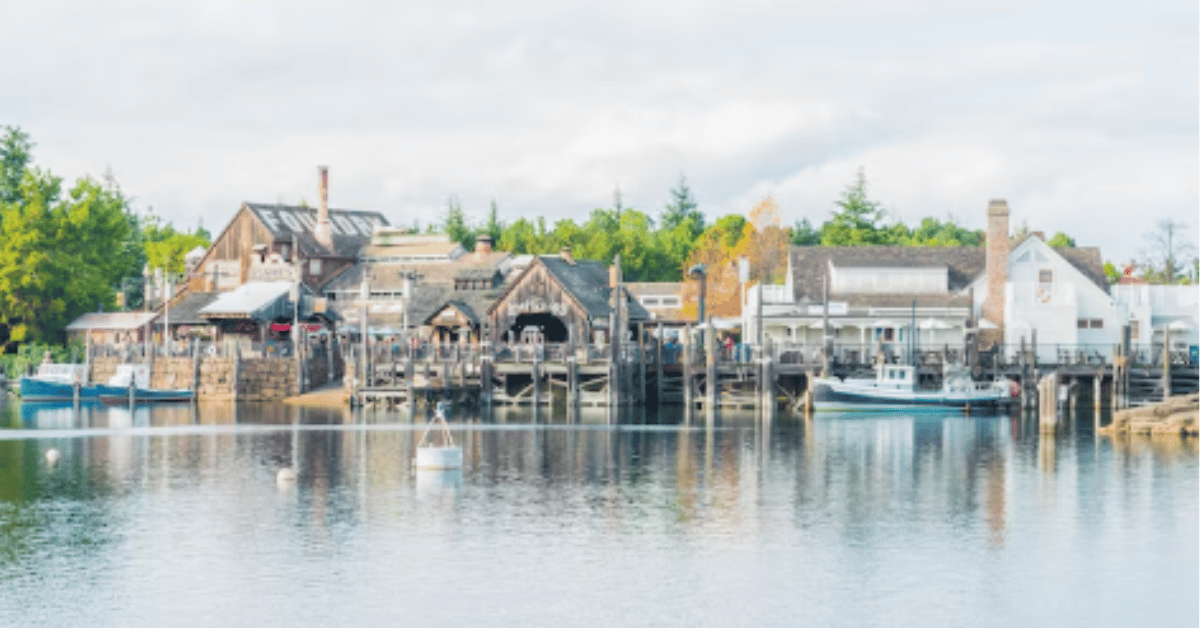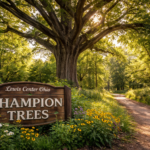Ocean Park, Maine, is not just another coastal community on the Atlantic shoreline; it is a living blend of tradition, history, recreation, and natural splendor. Visitors and residents alike are often drawn to Ocean Park because of its ability to provide relaxation while still nurturing a sense of shared cultural identity. For those seeking to understand Ocean Park Maine, the first essential truth is this: it is both a summer resort and a year-round community, embodying a lifestyle that balances seclusion with connection. Located just south of Old Orchard Beach, Ocean Park was originally founded in 1881 as a religious and cultural retreat. Since then, it has grown into a treasured destination where traditions are honored while new generations add to its story.
Ocean Park offers more than sandy beaches; it presents a deep cultural character, carried forward by its institutions like the Temple, the Soda Fountain, and the Ocean Park Association. For families, artists, historians, and casual vacationers, the place offers a rare opportunity: immersion into a coastal haven that resists over-commercialization while still thriving economically. Whether you are interested in swimming, strolling along shaded streets, participating in lectures, or attending community concerts, Ocean Park provides countless ways to connect. Within its six blocks of charm, one finds a concentrated version of Maine’s coastline spirit. As one longtime resident remarked, “Ocean Park is not a place you simply visit—it is a place you return to.” That sense of belonging and continuity shapes every experience here, making Ocean Park Maine more than a destination; it is a legacy, carried on by its people and preserved for future generations.
The Historical Roots of Ocean Park
Ocean Park’s story begins in the late nineteenth century when the Free Will Baptists established it as a Chautauqua-style community. These movements were designed to bring education, religion, and recreation into a single setting, reflecting a vision of self-improvement alongside leisure. The founders wanted more than a beach colony; they aimed to foster dialogue, reflection, and fellowship within a seaside setting. In its earliest years, Ocean Park attracted preachers, intellectuals, and artists who delivered lectures at the Temple, a striking octagonal building still central to the community today. That structure, resilient against time, embodies the idea that education and spirituality can coexist with leisure.
As the decades passed, Ocean Park expanded, welcoming families who built cottages, many of which still stand as preserved examples of turn-of-the-century seaside architecture. These cottages carry the whispers of earlier summers, when children played in the streets and evening gatherings involved music and storytelling rather than technology. The historical presence of Ocean Park reveals a community dedicated to tradition, one that treasures its origins without being frozen by them. Even as cars, phones, and digital entertainment entered American life, Ocean Park remained committed to its founding principles of balance between enjoyment and cultural enrichment.
The Natural Setting
Ocean Park is defined by its geography as much as by its culture. Nestled along Saco Bay, it offers sweeping Atlantic views, soft sand beaches, and a coastline ideal for both recreation and reflection. The beach itself stretches for miles, connecting seamlessly with Old Orchard Beach yet maintaining a quieter atmosphere. The sea breeze carries not just salt air but also a sense of continuity. Many visitors note that the shoreline looks much the same as it did generations ago.
The surrounding pine groves and shaded streets give the community its name and character. Unlike many coastal destinations where commercialization dominates the landscape, Ocean Park retains a sense of natural sanctuary. Walking paths through the woods allow for quiet reflection, and birdwatchers frequently report sightings of coastal species unique to the area. Nature here is not a backdrop—it is an essential participant in the Ocean Park experience. As one visitor wrote in their journal, “To walk through the groves toward the ocean is to step into a dialogue between land, sea, and spirit.” This harmony between natural beauty and human presence has always defined Ocean Park’s identity.
Ocean Park Institutions and Traditions
Ocean Park thrives because of its institutions, which act as anchors for its cultural life. The Temple remains a hub for lectures, religious services, and concerts, reminding visitors of the community’s origins. The Soda Fountain, established in 1930, provides an entirely different but equally essential role: it is a gathering spot where generations of families have shared ice cream, stories, and laughter.
Another cornerstone is the Ocean Park Association, which organizes activities ranging from pancake breakfasts to art shows and public lectures. These traditions sustain the community’s ethos. Annual events like the Illumination Night, where cottages are decorated with lanterns and lights, illustrate how Ocean Park merges old customs with celebratory joy. The Playhouse, a small but historic theater, continues to host plays and community performances, linking past creative endeavors with contemporary expression.
The community calendar ensures that Ocean Park remains vibrant across summer months, offering programs for all ages. From book clubs to youth camps, these institutions reflect Ocean Park’s unique balance: rooted in tradition, yet flexible enough to evolve.
Attractions Beyond the Beach
While the beach is Ocean Park’s most visible draw, the area offers more. Visitors can attend cultural lectures, explore the Grove Walk trails, enjoy tennis matches, or simply sit on cottage porches and participate in the social rhythm. Close proximity to Old Orchard Beach provides access to amusements, while Ocean Park itself remains calm, ideal for those who seek a quieter holiday.
The Ocean Park Soda Fountain deserves special attention. More than a place to enjoy a float or sundae, it is a landmark of community life. Its wooden booths and nostalgic atmosphere transport visitors into an earlier time. Likewise, the Temple’s lectures bring educational depth to leisure, offering talks that range from history to science. These contrasts—ice cream and intellectual debates—are what make Ocean Park extraordinary. As one local quipped, “Only here can you move from Shakespeare to sundaes in the same evening.”
The Economy and Preservation Efforts
Ocean Park’s economy rests primarily on tourism, summer rentals, and cultural events, but it has avoided the overt commercialization common in other seaside towns. This balance is intentional. Community leaders have long sought to preserve Ocean Park’s character, emphasizing quality of experience over profit margins. Cottages are often family-owned, passed down through generations rather than converted into commercial hotels.
Preservation efforts extend to architecture and the environment. Strict building codes prevent modern structures from disrupting the character of the neighborhood. The Ocean Park Association plays a central role in maintaining this balance, coordinating volunteers and programs that protect the community’s traditions. Fundraising campaigns often target restoration projects for the Temple, the Soda Fountain, and local trails. Ocean Park demonstrates how a small community can sustain itself economically without compromising its identity.
Table 1: Key Institutions in Ocean Park Maine
| Institution | Established | Role in Community Life |
|---|---|---|
| The Temple | 1881 | Hub for lectures, religious services, concerts, and events |
| Soda Fountain | 1930 | Social gathering spot offering ice cream and nostalgia |
| Ocean Park Association | 1881 | Organizes cultural, recreational, and preservation events |
| The Playhouse | 1920s | Theater for plays, performances, and community gatherings |
| Grove Trails | Natural | Walking and reflection paths through pine groves |
Modern-Day Visitors and Experiences
For modern travelers, Ocean Park offers a refreshing alternative to hyper-commercialized destinations. Families can rent cottages or stay at local inns, participating in a slower rhythm of life. Morning walks along the beach, afternoons with ice cream, and evenings at concerts form a familiar pattern. Many return annually, drawn not just by the place but by the friendships that grow through shared traditions.
Young visitors find joy in youth programs, arts camps, and simple outdoor games. Adults are attracted to the lectures, book clubs, and art exhibitions. Retirees often note the healthful calm that Ocean Park provides. What ties all experiences together is the sense of belonging. As one frequent guest expressed, “When you arrive, you’re a visitor. By the time you leave, you’re part of the community.”
Table 2: Seasonal Activities in Ocean Park Maine
| Season | Activities Offered |
|---|---|
| Spring | Community clean-ups, early bird watching, small lectures |
| Summer | Beach activities, Soda Fountain nights, Temple concerts, art shows |
| Autumn | Foliage walks, cottage closings, reflective retreats |
| Winter | Limited residency, planning for next season, preservation meetings |
The Cultural Significance of Ocean Park
Ocean Park is more than recreation; it is cultural heritage. It represents an era of American history when communities sought moral, educational, and social enrichment alongside leisure. Today, it remains a rare example of continuity in a rapidly changing world. Its lectures, religious gatherings, and performances represent traditions largely forgotten elsewhere. By keeping these alive, Ocean Park has become a cultural archive.
This significance is recognized not just by residents but by visitors who sense the difference immediately. Unlike resorts dominated by commercial attractions, Ocean Park centers on relationships, ideas, and shared experiences. It is a place where culture and coast merge. In this sense, it holds a place not just on the map of Maine but also within the larger narrative of American community life.
Conclusion
Ocean Park Maine stands as a living testament to the possibility of balancing leisure with cultural and spiritual enrichment. Its history, rooted in the Chautauqua movement, continues to influence its identity today. Its natural setting—beaches, groves, and trails—provides beauty and tranquility, while its institutions sustain traditions that keep the community alive. Unlike other coastal towns that surrendered fully to tourism, Ocean Park preserves authenticity. Families return, not merely for the sand and surf, but for the shared sense of belonging.
As one long-time summer resident stated, “Ocean Park is where time slows down just enough to remember what matters most.” This reflection captures why Ocean Park has endured for more than a century. It is not just a place to visit; it is a place to live in spirit, even when one departs. For travelers seeking more than entertainment, for historians curious about living traditions, or for families searching for genuine connection, Ocean Park Maine offers something rare: continuity, community, and calm, wrapped in the beauty of the Maine coast.
FAQs
Q1: What makes Ocean Park Maine different from nearby Old Orchard Beach?
Ocean Park Maine is quieter, more community-oriented, and historically preserved, while Old Orchard Beach focuses more on amusements and tourism. Ocean Park emphasizes tradition, culture, and family gatherings, offering a slower pace that appeals to those seeking calm and connection.
Q2: Is Ocean Park Maine only active in summer?
Although Ocean Park thrives in summer with events, lectures, and beach activities, it maintains year-round importance through preservation work, limited residency, and winter community planning. Its heart is summer, but its identity spans all seasons.
Q3: Can first-time visitors rent cottages in Ocean Park?
Yes, many family-owned cottages are available for seasonal rental. These rentals often provide authentic Ocean Park experiences, complete with porches, vintage designs, and close proximity to the beach and cultural institutions.
Q4: What are the most popular traditions in Ocean Park?
Key traditions include Illumination Night, concerts at the Temple, Soda Fountain gatherings, art shows, and community breakfasts. These events bring generations together and help preserve the cultural fabric of Ocean Park.
Q5: Is Ocean Park suitable for families with young children?
Absolutely. Ocean Park is designed with families in mind, offering youth programs, safe walking areas, beach access, and kid-friendly institutions like the Soda Fountain. Its family-oriented atmosphere is one of its strongest appeals.











